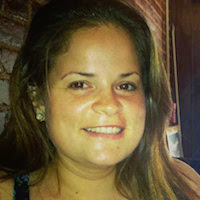Death is a topic that most people shy away from exploring.
Perhaps, that’s why we’re so fascinated by the supernatural (vampires, anyone?). We envy their immortality, their evergreen beauty, and stamina.
Ironically, contemplating death, as uncomfortable a topic as it might be, has the potential to teach us a lot about life.
Often, we can get so busy with our day-to-day lives that we forget what is most meaningful to us and instead get mired under the weight of all the busyness. We substitute our standards for shortcuts, quality for quickness, and our morals for the mundane.
Writing our own eulogy is an exercise that helps tap into our core values so that we are equipped to live a purpose-driven life.
I first heard of this practice from Charlie Harary, author of the personal development book Unlocking Greatness. The goal is to write out your own eulogy from the vantage point of the eulogizer.
Who would you like to speak at your funeral? What would you like them to say about you? What would you like to be remembered for? Write it down. This may sound like a morbid task but if you can make your way through it, the process can be profound and elucidating.
Charlie goes on to poignantly say that it’s easy to find people who are willing to die for their values but it’s much harder to find someone willing to live for their values.
We can get caught up in the weeds, in the minutia of our day-to-day lives and drift further away from our north star. Whereas we would jump in front of a moving car for our spouse, would we take out the garbage after a long day at work? We would loan a friend money to pay rent, but are we up for watching a movie when he or she is having a bad day but we have an important work deadline to meet?
Living a purpose-driven life is challenging and requires reflecting on how we show up daily. Do we live in accordance with our values when we are tired, hangry, overworked, under-slept, and stressed?
There is a tradition among monks to spend hours meditating on the decomposition of their bodies back into the earth after passing away. The app called WeCroak keeps this tradition alive through modern day tools by reminding its users to think of their mortality throughout the day. On their website it reads, “The WeCroak app is inspired by a Bhutanese folk saying: to be a happy person, one must contemplate death five times daily…(the) invitations come at random times and at any moment, just like death.”
In other spiritual traditions, this concept is echoed as well. In the words of King Solomon, proclaimed as one of the wisest men to have ever lived, “It is better to go to a house of mourning than a house of feasting.”
Why? Because a funeral provokes us to go inward toward our deeper spiritual callings in life. We are reminded that we are alive for a reason much greater than the rat race.
Don’t be discouraged if this exercise is difficult; it’s the equivalent of a massive spiritual workout. To help with the process, we can always think of the people who we admire most. Consider what their ideal attributes are and work to emulate some of those same characteristics in your unique style.
Remember to stay playful and curious on this journey. You can always come back to it (or not).
Writing our own eulogy can be incredibly illuminating—helping to reveal long-buried desires, beliefs, and values. We are heeding the call of the innermost contents of our heart and soul.
Through this practice, we can reverse engineer our lives rather than being pulled downstream by the riptide.
~












Read 16 comments and reply